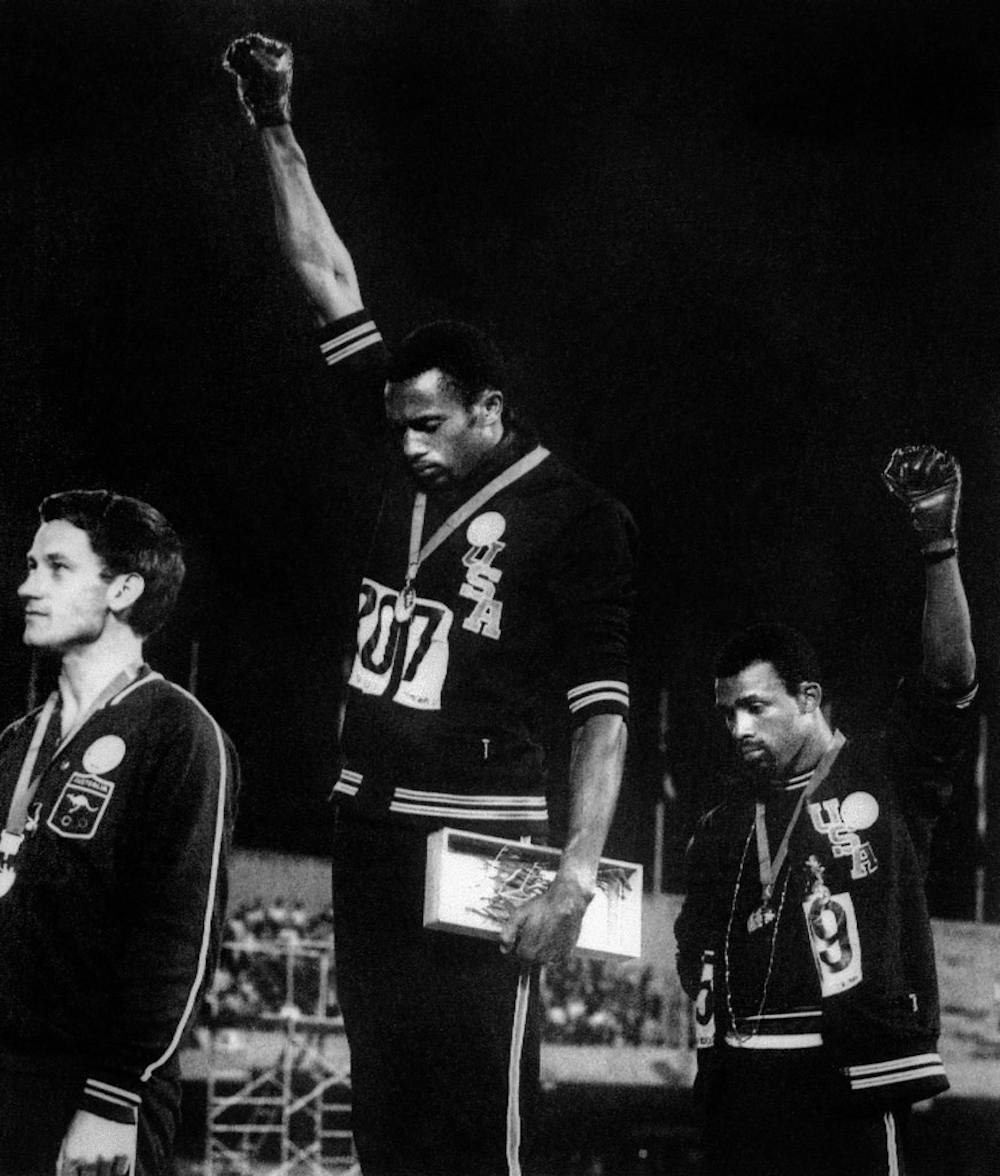“It is a fundamental principle that sport is neutral and must be separate from political, religious, or any other type of interference.”
So said the International Olympic Committee (I.O.C.) as it announced the rules for protest at the upcoming summer Olympic Games. While athletes may express themselves freely in the media, they will not be allowed to take politically motivated actions during the events and medals ceremonies.
By silencing athletes in their most visible opportunities to speak up, the Olympic committee undermines its claim to values such as equality worldwide.
At Princeton, we value our athletes as fierce competitors, but more importantly as the roommates, friends, and classmates they are off the field. Yet increasingly the world has less appreciation for professional athletes; more and more we require them to be one-dimensional — just players, rather than people with ideas to express.
We remember some of our most celebrated athletes — Jesse Owens, Muhammad Ali, Jackie Robinson, Tommie Smith, and John Carlos, to name a few — not in spite of but because of their outspoken advocacy for a better world. But though the two men are today admired for their courage and have since been named to the U.S. Olympic Hall of Fame, Smith and Carlos’ now-iconic raised fists, which Smith described as a “cry for freedom and for human rights” both in the United States and globally, would not be permitted today.
For example, after fencer Race Imboden knelt on the medal podium and hammer thrower Gwen Berry raised a fist during the national anthem at last summer’s Pan American games, both athletes were placed on probation for a year. In an op-ed for The Washington Post, Imboden invoked Ali, Smith, and Carlos as he explained his decision to kneel, in an echo of Colin Kaepernick’s protest against racial injustice. Berry shared similar reasoning, emphasizing that the previous day had marked five years since Michael Brown was killed in his hometown of Ferguson, Miss.
The Olympic committee’s reasoning for the policy is that “the focus for the field of play and related ceremonies must be on celebrating athletes’ performance, and showcasing sport and its values.” In a media world where cries for civility rule the day and the presentation of objectivity is seemingly held above all else, it is unfortunately unsurprising that the Olympic committee places appearance over substance. But with this policy, they mistake neutrality for the absence of a stance, when supporting the status quo itself constitutes taking a position. They fail to recognize that forced unity is not true togetherness.
What are these values that the I.O.C. wants to showcase through sport? Unity for its own sake? Silencing voices that may ruffle feathers, even if their substantive point is important? The I.O.C. does not clarify what it stands for, even as it commands athletes to fall in line behind its injunctions. Whether the Olympic committee acknowledges it or not, sports are political. Staying silent about a problem can say just as much as standing in support of it.

The Olympic committee argues that the international stage is not the place to show dissent. But one of the most important aspects of an effective protest is its visibility. At the Olympics, you can attract the eyes of the world in a way not possible at any other time. People who would not otherwise pay attention to activists will listen to what their favorite athlete has to say. Smith and Carlos’ fists stand out in our memory because their action was a departure from business as usual; we celebrate them because of the risk they took.
But this is the way of the world. Smith and Carlos face fierce backlash for their actions, including suspension from the Olympic team. Ali was not universally celebrated in his day. People called him brash and too political when he refused to serve in Vietnam. He was stripped of his boxing license and nearly sent to prison.
Now, the three are revered for their outspokenness.
We are watching the same process in real time as Colin Kaepernick has gone from rising star to blackballed dissenter when he dared to use his stage to speak up. With his Nike campaign a testament to the reshaping of his image, one could argue that he is moving to the martyr status, as another wronged athlete who will ultimately be seen as right in the end.

But if history will come around on athletes who protest, why should they face punishment in the moment?
There is this incredible dissonance between the way we remember our heroes from the past and the way we treat our living icons. Athletes should not have to choose between their career and doing what is right; yet, we force them to. And the more we do so, the more careers that will be lost, and the more that other thoughtful voices will be silenced because they cannot afford to take the risk.
And we are all worse off for that.
Julia Chaffers is a sophomore from Wellesley, Mass. She can be reached at chaffers@princeton.edu.








